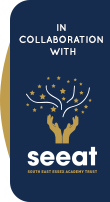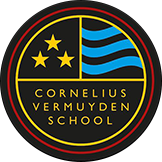English
Intent

Career Opportunities in English
The study of English equips you with skills that can lead to a wide range of career opportunities. Some potential career paths include administration, archaeology, broadcasting, civil service, diplomatic service, drama, theatre and the performing arts, education, environment and conservation, information management, law, media, teaching, public relations, journalism, legal executive, police, politics, publishing, sales and marketing, solicitors, tourism, town planning, and TV researching. The opportunities are extensive.
English is a core subject, alongside Maths, that colleges and employers highly value. Studying English can lead to A levels in Language, Literature, or combined subjects, and further education opportunities with degrees in Literature, Language, Creative Writing, or Journalism.
Year 7 Curriculum plans
| Term | What are we learning? | What Knowledge, Understanding and Skills will we gain? | What will excellence look like? | How will these be assessed? |
|
Autumn |
Students will learn about autobiographical writing using Roald Dahl’s ‘Boy’ as a key text.
|
Students will read and enjoy the class reader. They will analyse Dahl’s use of language, looking at techniques such as simile, metaphor and personification. They will aim to use more sophisticated vocabulary and language devices in their own writing. | Students will be able to analyse the use and effect of a range of language devices and to comment upon the effect on the reader. Their own autobiographical writing will be ambitious in terms of vocabulary choices, language devices and varied sentence structures and punctuation. | Formative assessment of smaller sections of autobiographical writing will lead to a summative assessment where students write their own mini-autobiography. |
|
Autumn |
Students will study the genre of Gothic fiction through a range of extracts.
|
Students will become familiar with the key features and important writers in the Gothic genre. They will begin their studies of 19th century literature which will be spiralled, as the curriculum progresses, to GCSE. | Students will be able to read extracts from nineteenth century literature with understanding and insight and become familiar with key ideas and themes. They will be able to replicate this style in their own piece of fluent and entertaining Gothic literature. | Students will complete formative assessment tasks based on the extracts they read in class and will complete a summative assessment of their own Gothic short story. |
|
Spring |
Students will study the genre of Science Fiction, reading the key text ‘A Sound of Thunder’ by Ray Bradbury.
|
Students will read and enjoy the short story from the Science Fiction genre. They will analyse Bradbury’s use of language, looking at techniques such as simile, metaphor and personification. They will learn how to write an analysis using quotations from the text and comments on the effect on the reader. | Students will be able to analyse the use and effect of a range of language devices and to comment upon the effect on the reader. | Students will analyse key extracts from the short story, where the T Rex is described. The assessment will be marked /20 according to GCSE Literature assessment guidelines. |
|
Spring |
Students will learn how to promote and publicise their own ‘Time Machine’ using a range of persuasive rhetorical devices and public speaking techniques.
|
Students will work in groups to devise and publicise their ‘Time Machine’. They will learn how to speak effectively and confidently to a listening audience. | A confident and engaging presentation used to persuade the listening audience. The presentation will be well structured and will use Standard English. | Individual assessment of each group member using Speaking and Listening assessment criteria. |
|
Spring |
Chaucer’s Canterbury Tales and the development of the English Language.
|
Students will study language change looking at Old and Middle English. They will study Chaucer’s medieval era and the popularity of pilgrimage at that time. We will study the General Prologue and Key character prologues and Tales. | Students will have a clear understanding of language change from old English to the present day. They will understand Chaucer’s world and his presentation of fictional character types from the medieval age. Students will be introduced, for the first time, to the GCSE skill of evaluating a writer’s work. | Students will be formatively assessed on paragraphs and essays written on the key text. This assessment will be a mixture of self, peer ad teacher assessment. The summative assessment will be an evaluation of how well Chaucer has present the medieval world in his work. This will be teacher marked/15 using GCSE English Language assessment criteria. |
|
Summer |
Spring Poetry An anthology of Spring poems written by a range of poets from William Shakespeare, Elizabeth Barrett Browning, Emily Dickinson, William Blake, William Wordsworth, Philip Larkin, Billy Collins, Seamus Heaney and John Agard
|
Students will be able to define what makes a poem. They will study different forms and genres of poetry. Contextually, students will understand the importance of the Romantic movement within poetry and the role of the Poet Laureate. Students will learn to recognise and understand how a rhyme scheme or free verse can affect meaning within a poem. They will also learn how to recognise poetic language devices, used in poetry and discuss their effect on the reader. | Students can confidently discuss the meanings of poetry and how it can relate to modern day readers. They will be able to write about the poems and explain how the form and structure of the poems affects the key ideas and themes that the poet wants to convey. In addition, they will be able to confidently connect contextual detail to the poems form, structure, language and meanings. | Formative assessment: Whole class feedback on written academic paragraphs In addition, there will be a mixture of peer, self and teacher-assessment including live marking Summative assessment will be an analytical response about Daffodils by William Wordsworth, looking at the context in which the poem was written and how the poet uses language, form and structure to engage the reader. This will be marked out of 20 using GCSE assessment criteria. |
|
Summer |
A Midsummer Night’s Dream by William Shakespeare
|
Students will learn about Shakespeare and his background. They will study Shakespeare’s diverse characters: The Athenians, The Fairies and the Mechanicals. They will study how Shakespeare’s uses form and structure in his plays, looking at the use of blank verse, monologues, and soliloquies. Students will understand the conventions of a Shakespearean comedy | Students will confidently be able to follow the plot and sub-plot and engage with the characters and events. They will be able to explain and analyse how the writer uses form, structure and language to engage the reader. | Formative assessment: Academic paragraphs analysing the play. (whole class feedback) Creative writing, which will be peer and - assessed. Summative assessment; Creative writing based on the idea of Bottom magically turning into a donkey. (Transformations!) Marked /40 using the GCSE writing mark scheme. |
Year 8 Curriculum plans
| Term | What are we learning? | What Knowledge, Understanding and Skills will we gain? | What will excellence look like? | How will these be assessed? |
|
Autumn |
Students will read the novel ‘The Boy in the Striped Pyjamas’ and excerpts from Anne Frank’s diary.
|
Students will understand the wider context of World War 2 and the Holocaust. They will become familiar with the plot, characters and themes in ‘The Boy in the Striped Pyjamas.’ They will make some comparisons between the fiction and non-fiction text. | Students will be able to write fluently about the novel, using embedded quotations and commenting on the effect on the reader of language and structure techniques. | This unit will be assessed through a piece of transactional writing, where students will write, in role, as one of the characters. During the teaching, there will be several opportunities for formative assessment. |
|
Autumn |
Comparative Poetry Unit.
|
Students study a range of poems, which are paired by theme. This unit builds upon the Year 7 poetry unit to look at comparisons between poems based on context, language, form and structure. Students learn to make comparisons and to embed quotations to back up points made. | The aim of the unit is for students to be able to make interesting and original comparisons between poems, pointing out similarities and differences between the ways a particular theme or idea is conveyed in two poems. Students will write fluent essays comparing a range of different aspects. | Throughout the teaching of the unit there will be many opportunities for formative assessment but the unit ends with a formative assessment comparing two poems on the topic of ‘old-age’. |
|
Spring |
Students will study the genre of travel writing, looking at key extracts from well-known travel writers including Bill Bryson and Paul Theroux. Students will learn how to utilise specific language and structure techniques in their own examples of travel writing.
|
Students will read and enjoy key extracts from the best published travel writers. They will analyse their use of language and structure, looking at key techniques, including sensory language and complex sentence structures. They will learn how to write in a convincing style for this genre. | Students will be confident in their analysis of the use and effect of a range of language and structure techniques and able to fully evaluate their effectiveness. They will put their knowledge and appreciation of the skills of published travel writers to use in their own effective piece of travel writing. | Formative assessment will be frequently used as students evaluate the work of travel writers and practise their own writing skills. Summative assessment will be in the form of an extended piece of travel writing. Marked /40, using GCSE writing criteria. This piece will be marked and re-drafted into a final top-copy. |
|
Spring |
A playscript version of Shelley’s Gothic play ‘Frankenstein’ adapted by Philip Pullman.
|
Students continue to develop their understanding of the nineteenth century and Gothic texts, in particular. They will read and enjoy the play and examine its key themes linked to advances in science, monsters and what it means to be human. | Students will confidently analyse and comment on an extract from the play where Dr Frankenstein decries his creation. Students will fully appreciate how the extract is structured and how language has been used to create empathy for Frankenstein’s ‘monster. ’ | Students will have the opportunity for formative assessment as they get to grips with the text and its themes. They will write thoughtfully and analytically about the text itself and the important ideas that it examines. Formative assessment is an analysis of the use of language and structure in a key extract from the play. Marked/20 using GCSE English Literature assessment criteria. |
|
Summer |
Students will read and study the classic novel, ‘Animal Farm’ by George Orwell. They will study the context of the novel and its parallelisms with Russian history as well as its key themes and political messages.
|
Students learn to identify and analyse central themes such as power, corruption, and the manipulation of language The novel is a political allegory, so students will develop the ability to analyse and interpret allegorical elements, recognizing how the events in the story represent real-world historical events (e.g., the Russian Revolution and the rise of totalitarianism). They will write short paragraphs and longer essays, using quotations from the novel, embedding quotations and linking to the context. | Students will have excellent and personal engagement with the text. They will show a detached critical overview when writing about the text, giving personal and original ideas. They will use an academic writing style in their essays, utilising well selected quotations to support their ideas. | The summative assessment for the unit will be an essay discussing the portrayal of the working-class characters in the novel. Students will be assessed on their knowledge of the characters and plot, their use of well-selected quotations and their understanding of the context in which the novel was written. The essay will be marked using GCSE criteria and a mark/40, including 8 marks for spelling, punctuation and grammar. Throughout the unit, practice paragraphs and mini essays will be formatively assessed. |
|
Summer |
Students will read and study Shakespeare’s Much Ado about Nothing’
|
Students will build on their understanding of Shakespeare’s comedies from Year 7. They will read and understand the play and understand its comedy as well as its more serious messages. Students will learn how to highlight and annotate extracts for language, form and structure and how to write analytically from those annotations. They will learn to empathize with characters in the play and to write from their point of view. | Students will read and understand the play in its original language. They will engage with a range of contemporary and modern productions. They will understand the motives behind the characters’ actions in relation to the context in which the play was written. Their final assessed piece will use a range of tier 2 vocabulary, sentence structure and creative language devices. Spelling, punctuation and grammar will show advanced skills and be accurate. | The summative assessment task will be a written task, marked out of 40, using GCSE assessment criteria. Students will write a letter, from the point of view of Beatrice about the disastrous wedding of Hero and Claudio. Formative assessment will include extract analysis and other practice pieces writing empathetically from the point of view of other characters. |
Year 9 Curriculum plans
| Term | What are we learning? | What Knowledge, Understanding and Skills will we gain? | What will excellence look like? | How will these be assessed? |
|
Autumn |
Students will study the novella ‘Of Mice and Men’ by John Steinbeck.
|
Students will understand the wider context of The Great Depression in 1930s America and issues of segregation and racism at that time. They will read and analyse the novella, looking at how Steinbeck uses language and structure to interest and engage the reader and to practise GCSE analytical skills. | Students will respond to characters and themes in the text with insight and understanding. They will write fluent paragraphs giving detailed and sophisticated analysis looking at context, language and structure. Well-chosen quotations will be skilfully embedded in the analysis. | Throughout the teaching of the novella, formative assessment will be integrated to ensure the progression of skills. The summative assessment will be a character study of the character ‘Slim.’ |
|
Autumn |
Winter Themed Imaginative Writing Unit.
|
Students will read and analyse a range of short extracts representing writers from Shakespeare to the present day. The anthology of texts will include both fiction and non-fiction all united by a winter theme. | Students will be increasingly confident in reading and understanding a range of fiction and non-fiction text extracts, from all literary genres and eras. They will be able to analyse the writers’ use of language and structure and its effect on the reader. They will write creatively and engagingly on the theme of Winter. | Formative assessment will be interweaved into the teaching of the unit, in the form of analytical and written tasks. The summative assessment is a creative piece, entitled ‘Winter Journey.’ |
|
Spring |
Students will study poems looking at the theme of anger including discrimination of race and class. The poems set for study are: •The Class Game by Mary Casey •Half Caste by John Agard •No Problem by Benjamin Zephaniah •A Poison Tree by William Blake •Cousin Kate by Christina Rossetti.
|
Students will learn how to read and understand a poem and its context. They will analyse and write about the poem and its effects on the reader in terms of poetic devices, lexis, form and structure. | Students will feel confident to read and interpret poetry and to analyse the effect of the choices made by the poet. Students will be able to analyse the use and effect of a range of poetic devices and to comment upon the effect on the reader. Their analytical paragraphs will include well selected quotations and developed ideas, informed by a detailed understanding of the context in which the poem was written. | Formative assessment will take the form of practice paragraphs, self- and peer assessed against the success criteria. Summative assessment will be a comparison of the presentation of anger in two of the poems studied. The final essay will be marked using the GCSE English Literature assessment framework, with a mark/ 20. |
|
Spring |
Shakespeare’s Romeo and Juliet.
|
Students will study their first Shakespearean tragedy, following on from the study of two of Shakespeare’s comedies. They will read and enjoy the play and study contextual issues such as arranged marriages and the power of the patriarchy at the time the play was set. Students will practise GCSE skill in analysing the effect of language and structure in extracts from the play. | Students will have an excellent understanding of the play and its meaning within the contexts in which it was set and written. Students will write confidently, using well-chosen quotations, about extracts from the play, focussing on language, form and structure. | Formative assessment will be teacher marked, on an extract from the play. Similarly, the summative assessment will be the analysis of an extract from the play marked/20, using GCSE English literature criteria. |
|
Summer |
Students will read and study the nineteenth century short story ‘The Withered Arm’ by Thomas Hardy. They will learn how to approach the new GCSE skill of evaluation.
|
Students will learn about the role of superstition, rural isolation, and class distinctions in C19th rural life and how it shaped the characters’ lives. They will link their understanding to the poem ‘Cousin Kate’ by Christina Rossetti, which they have recently studied. Evaluating the story’s themes, characters, and symbolism helps students build critical thinking skills. They will learn how evaluate the skill of the writer and to support their interpretations with evidence from the text. | Excellence will be demonstrated through a thoughtful, well-structured response to the text, showing a deep understanding of the historical context (19th-century rural life) and thematic elements (superstition, isolation, class, and gender). The evaluative essay will demonstrate a clear, focused argument, critical engagement with the text, and an ability to evaluate the writer’s skill. | The formative assessment will be an essay evaluating how successfully Hardy creates a horrifying ending to the short story. Students will evaluate themes, ideas, events and settings to make their judgement. The assessment will be marked /15 using GCSE assessment criteria. Throughout the unit practice pieces will be self and peer assessed. |
|
Summer |
Conflict Poetry Poetry about conflicts including WWI, The Crimean War, The Boer War, The Irish Troubles
|
Students will study the following poems related to war, learning about the context in which the poems were written and the poets use of language, form and structure: The Charge of the Light Brigade by Alfred Lord Tennyson Belfast Confetti by Ciaran Carson Exposure by Wilfred Owen The Battle of Sennacherib by Lord Byron. The Man he Killed by Thomas Hardy War Photographer by Carole Satyamurti | Students will show an insightful analysis that demonstrates a deep understanding of the historical context, poets use of language, form, and structure, and thematic connections between the poems. Students will showcase their ability to make thoughtful comparisons between the different poems, recognizing how each poet uses language and literary techniques to convey the horrors of war, the emotional impact on those involved, and broader social and political implications. | Students will complete formative assessments essays on some of the poems, looking at language, form and structure. The summative essay will be a GCSE style comparison essay comparing the presentation of conflict in The Charge of the Light Brigade and one other poem from the cluster. |
Year 10 Curriculum plans
| Term | What are we learning? | What Knowledge, Understanding and Skills will we gain? | What will excellence look like? | How will these be assessed? |
|
Autumn |
‘An Inspector Calls’ by J.B Priestley
|
Students will study this 20th- century drama, set for English Literature Paper 1. They will read and understand the play and the contexts in which is was written and performed. | Students will show the ability to write a detailed and focussed literature essay, showing a highly developed critical viewpoint , closely related to the text and showing a developed insight into the contexts in which the play was written and first performed. | Formative assessment will take place throughout the teaching of the text. Summative assessment will be a literature essay based on one of the key characters in the play. |
|
Autumn |
A Christmas Carol' by Charles Dickens
|
Students will read and understand 'A Christmas Carol' by Charles Dickens. They will learn how to analyse an extract for language and structure and to write about a character or theme in the whole text, backed up with quotations. | Students will confidently analyse the effect on the reader of Dickens use of language and structure. They will be able to build a string argument, introduced by a thesis statement and judiciously selected reference to text, regarding a key theme or character in the novella, | Formative assessment will take the form of practice extracts and essays , self- and peer assessed against the success criteria. Summative assessment will be a full examination question answering both part a and b questions. |
|
Spring |
Shakespeare’s Macbeth
|
Students will further their understanding of the conventions of Shakespearean tragedy during their study of Shakespeare’s Macbeth. They will read and understand the play and the contexts in which it was set and written. The focus will be on analytical skills looking at extracts from the play as well as writing about the whole text in terms of theme and character. | Students will have a confident understanding of the play and the way in which it was written to please the new King, James I. They will comprehend Jacobean beliefs in witches and the supernatural and see multiple interpretations of the events in the play. They will be able to analyse extracts effectively and to write about the whole text and its context using well-chosen references to the text. | Students will be assessed formatively and summatively on both part a) extract questions and part b) whole text questions. |
|
Spring |
Shakespeare's Macbeth and unseen poetry
|
Students will finalise their studies of Macbeth and complete an unseen poetry unit, learning how to read , understand and analyse poems on a first reading and to make comparisons between them. | Students will show competence at comparing unseen poems, showing a high degree of insight and understanding and clear comparisons of language, form and structure, | Students will practise comparing unseen poetry and completing summative assessments. The formative assessment will be a past paper question on unseen poetry. |
|
Summer |
English Language Paper 1
|
Students learn how to approach English Language Paper 1. They learn how to approach the reading and understanding of the extract from a nineteenth century text, revise how to analyse and evaluate and further develop their creative writing skills. | Students show a deep understanding of the extract and are able to analyse the effectiveness of both language and structure used by the writer. Evaluation is detailed and sophisticated and imaginative writing is sophisticated and uses a wide range of Tier 2 vocabulary. | Students will complete a practice test, modelled by the teacher as formative assessment and complete a full paper, unaided, as the summative assessment.. |
|
Summer |
Spoken Language Endorsement
|
Students will learn to plan, write and structure a speech, written to inform, entertain and in some cases persuade. They will plan, write, learn and practise the speech, using Standard English and a wide range of tier 2 vocabulary and | Excellence in the Spoken Language Endorsement for the Edexcel GCSE will be demonstrated through the student's ability to give a thoughtful, well-structured speech on a complex topic, using a wide range of extended vocabulary and rhetorical devices. They should be able to answer questions posed to them in significant detail. | .The written speeches will be teacher assessed and advice will be given about how to improve. The summative assessment is a teacher assessed recording of the speech, graded pass, merit or distinction. |
Year 11 Curriculum plans
| Term | What are we learning? | What Knowledge, Understanding and Skills will we gain? | What will excellence look like? | How will these be assessed? |
|
Autumn |
English Language Paper 2.
|
Students will recall skills learned for English Language Paper 1 (analysis and evaluation) and apply them to non-fiction texts, for Paper 2. In addition, they will learn how to compare non-fiction texts and how to approach the transactional writing section of the exam paper. | Students will show confidence in analysing and evaluating texts, showing a sustained critical overview and making perceptive comments. Their transactional writing will be suitable for audience and purpose, using a range of vocabulary and sentence structures. | Formative assessment will be interweaved into the teaching of the unit. Summative assessment will be a piece of transactional writing. |
|
Autumn |
Students will complete a revision unit on the play ‘An Inspector Calls’ by J. B Priestley. Students will learn how to write an academic essay using a critical overview of the play.
|
Students will learn how to write an introduction to the essay linking in key contextual ideas about the play’s 1912 setting and 1945 first performance. They will learn to address the question and to refer to relevant characters, themes, quotations and contextual references rather than using a linear approach to the storyline. | Students will write as literary experts on the play, maintaining a critical overview, selecting quotations judiciously and linking the message of the play to its 1912 Edwardian setting and the context of J. B Priestley as a post-war socialist writer and social commentator. | Formative assessment will take the form of practice paragraphs, self and peer assessed against the success criteria . Summative assessment will be a complete essay, written in exam conditions and marked against the exam criteria, including 8 marks for spelling, punctuation and grammar. |
|
Spring |
Revision for ‘A Christmas Carol’ Evaluate and comparison questions for English Language.
|
Students will revise key aspects of the plot, themes and characterisation in A Christmas Carol. They will practise analysing an extract for language, form and structure making clear and proficient use of subject terminology. They will use academic writing techniques to write part b answers on the whole novella. Students will learn how to use a thesis statement and evaluative adverbs and verbs, when looking at fiction and non-fiction extracts/ articles. Students will revise skills for the short and long comparison questions on Language Paper 2. | Students will have excellent and personal engagement with the text. They will show a detached critical overview when writing about the text, giving personal and original ideas. They will use a full range of subject terminology and Tier 2 vocabulary. They will use an academic writing style in their essays, utilising well selected quotations to support their ideas. | For part a questions on ‘A Christmas Carol’ students will be assessed on their ability to analyse Dickens’ use of language, form and structure, using subject terminology. For part b questions students will be assessed on their knowledge of the characters, plot and themes and their use of well-selected quotations. The questions will be peer, self and teacher assessed using GCSE criteria and a mark/20. Language questions will be similarly assessed using the exam assessment criteria. |
|
Spring |
Conflict Poetry and Imaginative Writing
|
Students will study the remaining poems from the Conflict Poetry Anthology: Poppies by Jane Weir Caitlin by Gillian Clarke The Prelude by William Wordsworth What were they like? by Denise Levertov Creative writing tasks will be linked thematically. | Students will make a range of thoughtful comparisons of context, language, form and structure, supported by well-selected quotations. Creative writing will be sophisticated and structured to foster maxim reader engagement. | Formative assessment of paragraphs and shorter pieces. Summative assessment of a creative writing piece. |
|
Summer |
Macbeth revision and revision of exam technique for all four papers
|










